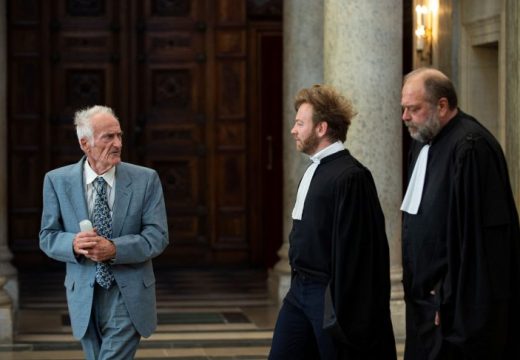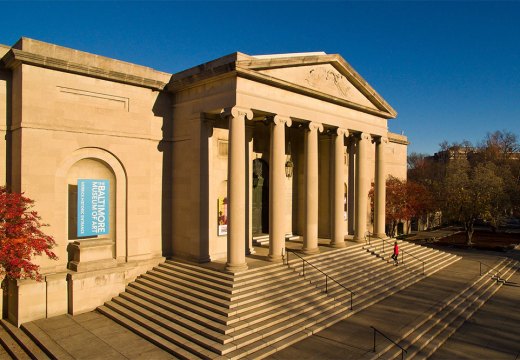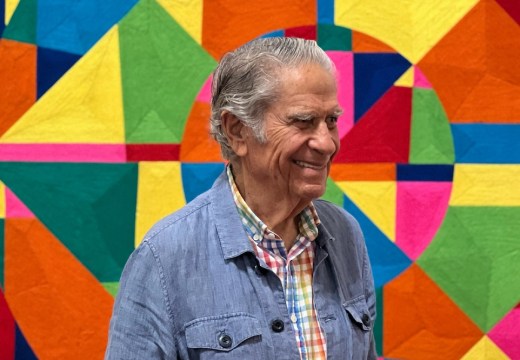Our daily round-up of news from the art world
British metal detectorists receive jail sentence for stealing Saxon and Viking hoard worth £3m | Two British metal detectorists have been jailed for stealing a hoard of Saxon and Viking objects thought to be worth £3 million. George Powell, 38, has received a sentence of 10 years, and Layton Davies, 51, of eight and a half years. Powell and Davies discovered the collection of objects in a field in Eye, Herefordshire, in 2015, but failed to declare the fubd, which includes around 300 coins, a 9th-century gold ring and a crystal rock pendant, to the land’s farmer or relevant authorities; they instead sold the hoard on to dealers. Only 31 coins, which form part of a collection experts think could provide new information about the unification of England, have been discovered so far. A third defendant, coin seller Simon Wicks, 56, has been convicted on a concealment charge and sentenced to five years in prison, while another man convicted of concealment, Paul Wells, 60, will be sentenced in December.
Cecilia Vicuña awarded Spain’s most prominent art prize | The 2019 Premio Velázquez de Artes Plásticas, given by the Spanish Ministry of Culture to an artist from Spain or the Ibero-American Community of Nations, has been awarded to Cecilia Vicuña. The 71-year-old Chilean artist, who earlier this week was shortlisted for the Guggenheim Museum’s Hugo Boss Prize, employs a wealth of media, including painting, sculpture, poetry and activism, to address issues such as cultural homogenisation, environmental degradation and political upheaval. The Premio Velázquez de Artes Plásticas, which was founded in 2002, carries a cash prize of €100,000.
Manchester Museum is first UK institution to return objects to indigenous groups | The Manchester Museum has become the first museum in the UK to repatriate objects from its collection to indigenous groups. 43 pieces, many of which are believed to have arrived in the UK over a century ago but have not been on display for decades, will be returned to four indigenous groups in Australia: the Aranda people of Central Australia, the Gangalidda Garawa peoples of north-west Queensland, the Nyamal people of the Pilbara and the Yawuru people of Broome. Thirteen other British institutions have expressed readiness to hand over objects from their own collections, The Art Newspaper reports.
Whitney Museum receives $1m grant to fund Hudson River installation | The Whitney Museum of American Art in New York has been awarded a grant of $1 million from the Keith Haring Foundation, which will enable it to construct an installation by David Hammons over the Hudson River. Day’s End, a 373-foot-long and 50-foot-tall structure made from stainless steel, will seem to float above the river, a tribute to Gordon Matta-Clark’s 1975 work, a self-declared ‘sun-and-water temple’ of the same name. The work, which is currently under construction, is expected to be revealed in September 2020.
Recommended reading | Two months after Maurizio Cattelan’s America disappeared from an English palace, The New York Times asks the question: ‘What Happened to the Stolen Gold Toilet?’ The New Statesman explores the ‘optimism’ behind Steve McQueen’s Year 3, a public art project currently splashed across London billboards. Donald Trump’s first National Medal of Arts honours list doesn’t include the name of a single visual artist; The Atlantic examines this glaring absence.
Unlimited access from just $16 every 3 months
Subscribe to get unlimited and exclusive access to the top art stories, interviews and exhibition reviews.














![Masterpiece [Re]discovery 2022. Photo: Ben Fisher Photography, courtesy of Masterpiece London](http://www.apollo-magazine.com/wp-content/uploads/2022/07/MPL2022_4263.jpg)






